Animal Farm at Wilton’s Music Hall
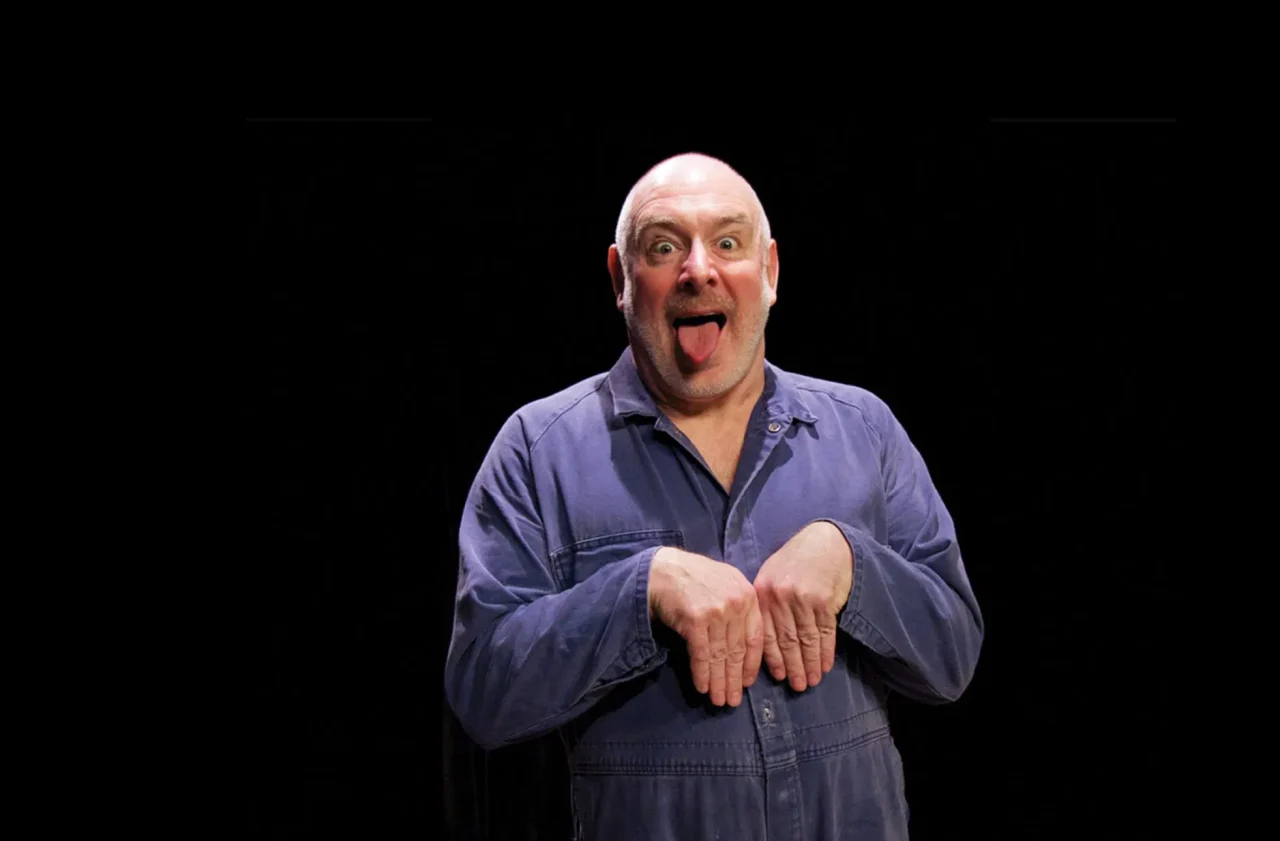
Almost everyone will have heard of George Orwell’s novel Animal Farm, particularly the infamous line, “All animals are equal, but some are more equal than others.” It’s a satirical piece that criticises communism, specifically the Russian Revolution in 1917 up to Stalin’s reign. Not everyone who has heard of Animal Farm has read it, though. This adaptation by Guy Masterson at Wilton’s Music Hall is one he has performed for over 29 years, as he proudly states, and it’s an easy and digestible recount of Orwell’s work. Anyone curious about the plot and events within the book might find this a more concise and entertaining alternative.
After so many years, Masterson has mastered the art of showcasing multiple characters in his one-man show. He has unique and specific voices for every single one of the animals, so the audience always knows who’s talking. Furthermore, his transition from one character to another is seamless. Masterson is also heavily reliant on body language to add personality to each animal – every character has their individual mannerisms and way of interacting with each other. But even without all of that, Masterson in general is so animated and charismatic that it’s easy to invest in his play even in the quieter moments of Animal Farm.
The production makes creative use of sound and lighting to further enhance the storytelling. Audio is used specifically for chants, singing and animal noises screaming on top of each other. There’s something very interesting in how dissonant and unorganised the sounds are – they don’t follow the same rhythm, emphasising the disconnect between the different groups. There are also clips played from real-life politicians making false promises to further underline the government’s hypocrisy. One damning audio played is Boris Johnson and his statement during the early days of Covid-19 in 2020. It’s a testament to Masterson’s effort to keep the show relevant and updated.
Lighting uses angles to incorporate Masterson’s shadow in the staging: by enlarging it to depict the overwhelming figure of Napoleon and to create multiple presences within the stage. In the confession scene where the animals are killed one by one, each of Masterson’s shadows disappears from the backdrop as more and more animals are killed. Then suddenly, darkness takes over, dripping in red, no shadow to be found, only leaving Napoleon standing tall amongst the body of corpses. It’s a visceral sight that drives home the message of Animal Farm as a whole.
Gaslighting, political hypocrisy and the myth of hard work – these are just a few of the themes covered in Animal Farm. Masterson’s retelling and explanation of Orwell’s novel is dark and entertaining. While a one-man adaptation sounds ambitious, Masterson makes something energetic and exuberant, without taking away from the story’s nuances. Hats off to him for a wildly funny and innovative show.
Mae Trumata
Animal Farm is at Wilton’s Music Hall from 23rd until 27th January 2024. For further information or to book visit the theatre’s website here.


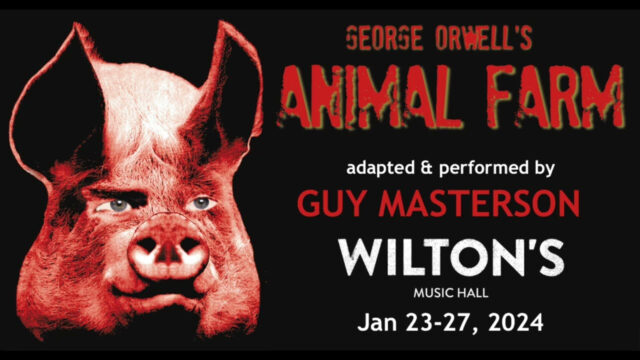
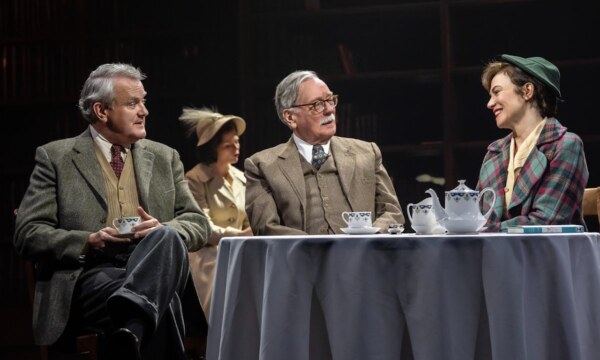
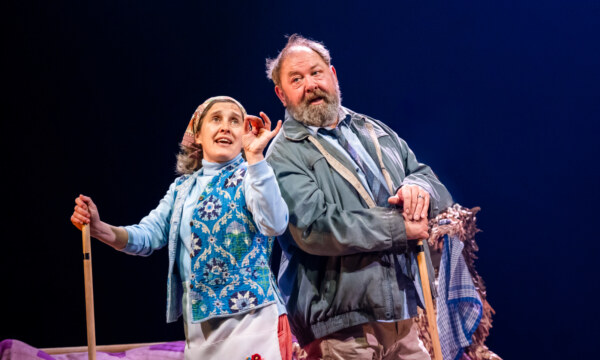
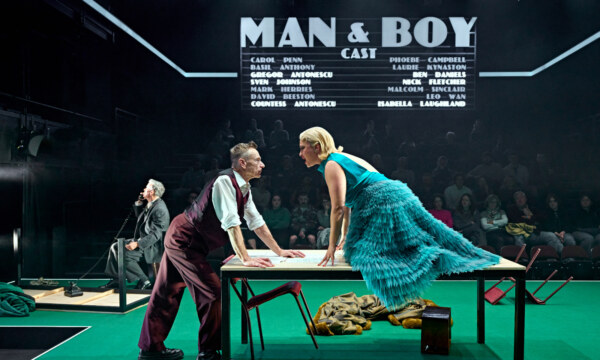
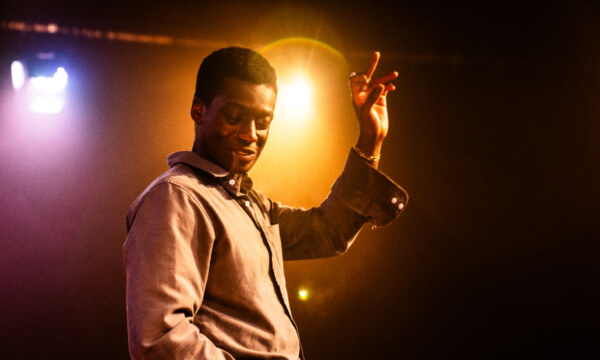
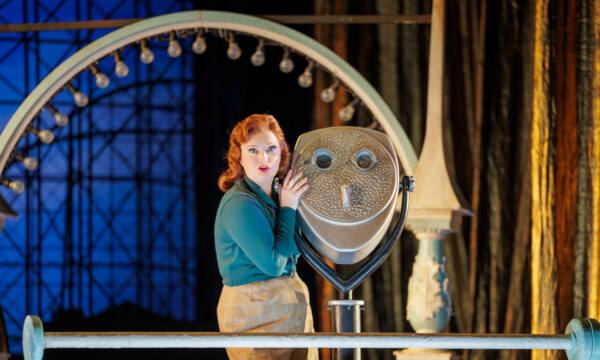
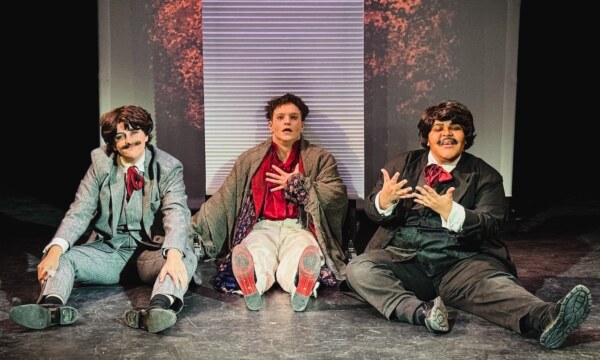
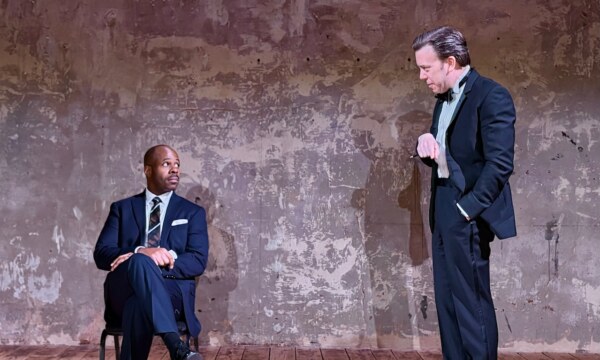
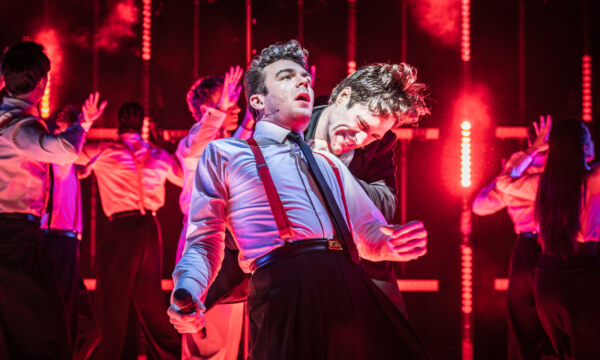
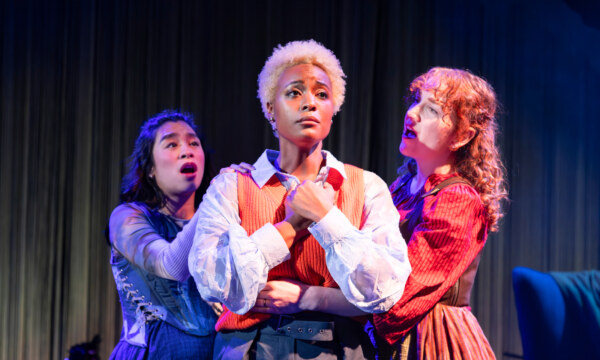

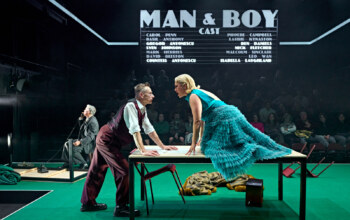
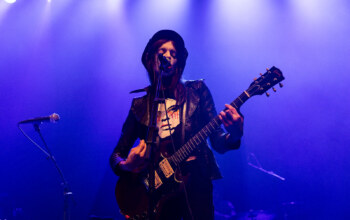

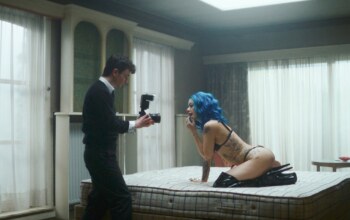
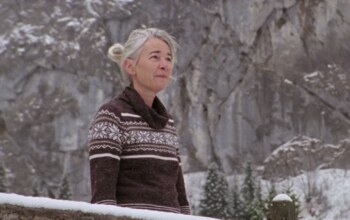
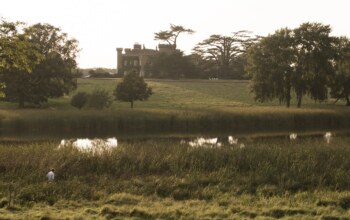

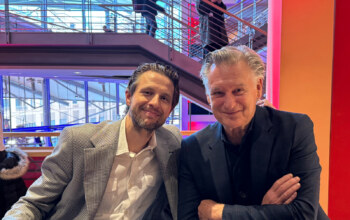




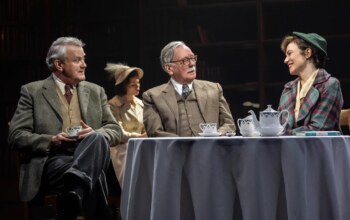
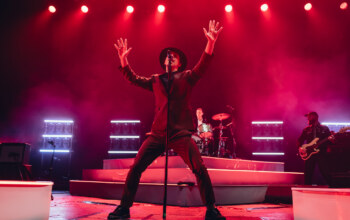
Facebook
Twitter
Instagram
YouTube
RSS